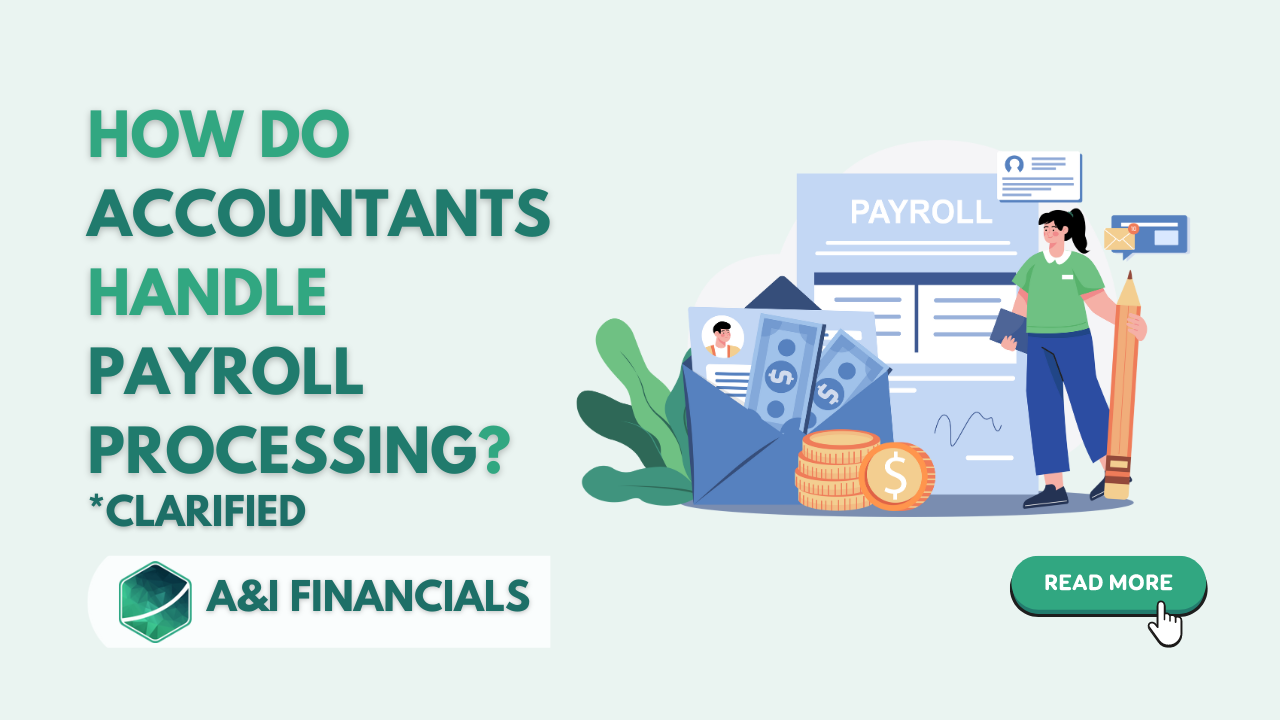How Do Accountants Handle Payroll Processing? [Clarified]
When it comes to managing payroll, accountants are like the unsung heroes in a company. In addition to making sure employees are paid correctly and on time, they also ensure that all deductions and taxes are taken care of. But how exactly do accountants handle payroll processing? Well, it’s not just about cutting checks; there’s a lot more to it.
The Basics of Payroll Processing
Understanding payroll processing is crucial before diving into the nitty-gritty.. In simple terms, payroll processing is the procedure by which employers pay their employees for the work they’ve done during a specific period. But let’s not oversimplify it. This process involves calculating the total amount an employee earns, deducting the necessary taxes and other withholdings (like health insurance), and ensuring that the net pay—the money the employee takes home—is accurate.
For small businesses, payroll processing can be a daunting task. It’s not just about adding up hours worked and handing out checks. You’ve got to consider state taxes, federal taxes, social security contributions, and a whole host of other deductions. Mess it up, and you could face hefty fines, disgruntled employees, or even legal issues.
Gathering the Necessary Information
The first step in payroll processing is gathering all the necessary information. This is where having a good system in place really pays off. Accountants need to collect data on employee hours worked, salaries, overtime, bonuses, and commissions. They also need to be aware of any changes to employee status, like new hires, terminations, or changes in salary.
But it doesn’t stop there. You also need to account for benefits like health insurance, retirement contributions, and other deductions. And don’t forget about the employer identification number (EIN), which is essential for tax filing purposes.
Calculating Gross Pay
Once all the information is gathered, the next step is calculating gross pay. Gross pay is the total amount an employee earns before any deductions are made. This includes their base salary, overtime, bonuses, and any other forms of compensation.
For hourly employees, gross pay is calculated by multiplying the number of hours worked by their hourly rate. For salaried employees, it’s usually a fixed amount per pay period. This might sound simple, but when you factor in things like overtime pay, it can get a bit more complicated.
Deducting Taxes and Other Withholdings
Now comes the fun part—deductions. This is where accountants really earn their keep. Payroll taxes, income taxes, social security contributions, and Medicare deductions all need to be calculated and withheld from each employee’s paycheck.
But that’s not all. There are also state taxes, local taxes, and possibly other deductions like retirement contributions, health insurance premiums, and garnishments. These deductions can vary depending on where your business is located and the specific agreements with your employees.
For instance, in some states, there are additional state taxes that must be withheld, and if your business operates in multiple states, you need to be aware of the tax laws in each of those states. Accountants also need to stay on top of any changes to tax laws, which can happen frequently.
Ensuring Accurate Payroll Accounting
Accurate payroll accounting is critical for any business, and it’s something that accountants take very seriously. This involves making sure that all payroll expenses are recorded correctly in the company’s financial records. It also means reconciling the payroll records with the company’s bank statements to ensure that the correct amounts were paid out and that the cash flow is properly managed.
Utilizing Payroll Software
Most accountants today rely on payroll software to handle the complexities of payroll processing. From generating pay stubs and direct deposits to calculating taxes and deductions, payroll software automates many payroll tasks. This not only saves time but also reduces the risk of errors.
However, it’s important to note that while payroll software can make the process easier, it’s not a magic bullet. Accountants still need to ensure that the data entered into the software is accurate, and they need to be aware of any limitations of the software.
Handling Payroll for Small Businesses
For small businesses, handling payroll can be particularly challenging. With fewer resources and often without a dedicated HR department, the responsibility of payroll often falls on the accountant. This means that they need to be familiar with all aspects of payroll processing, from calculating employee compensation to ensuring compliance with tax laws.
Keeping track of payroll taxes is a challenge for small businesses. Small businesses often face significant payroll tax burdens because payroll taxes are such an important part of payroll processing. Accounting professionals must calculate payroll taxes correctly and pay them on time in order to avoid penalties and interest.
Managing Payroll Services
Some businesses choose to outsource payroll processing to a payroll service provider. This can be a good option for businesses that don’t have the resources to handle payroll in-house. Payroll services can handle everything from calculating gross pay and deductions to filing tax returns and generating W-2s.
However, even if you outsource payroll, the accountant still plays a crucial role. They need to ensure that the payroll service provider is doing their job correctly and that the payroll records are accurate. They also need to reconcile the payroll records with the company’s financial statements to ensure that everything is in order.
Filing Payroll Taxes
Filing payroll taxes is another critical aspect of payroll processing. Accountants need to ensure that all payroll taxes are filed on time and that the correct amounts are paid. This includes federal income taxes, state income taxes, social security, Medicare, and unemployment taxes.
Business owners who operate in more than one state may find that filing payroll taxes can be a complex process. Each state has its own tax laws and filing requirements, and it’s up to the accountant to ensure that the business is in compliance with all of them.
Managing Cash Flow
A company’s cash flow can be significantly affected by payroll processing. When payroll isn’t properly managed, it can lead to cash flow issues, which are often one of the largest expenses for a business.
Accountants need to ensure that the business has enough cash on hand to cover payroll expenses and that the timing of payroll payments doesn’t interfere with other financial obligations. This requires careful planning and forecasting.
Ensuring Compliance with Tax Laws
Payroll processing must comply with tax laws. For the business to be compliant, accountants must stay up to date on all taxes laws and regulations. This includes federal, state, and local tax laws, as well as any industry-specific regulations.
Failure to comply with tax laws can result in hefty fines and penalties, not to mention the potential damage to the company’s reputation. This is why accountants need to be vigilant in ensuring that all payroll taxes are calculated correctly and filed on time.
Addressing Common Payroll Challenges
Payroll processing is not without its challenges. One of the most common challenges is dealing with errors. Payroll processing errors can have significant consequences for employees, as well as legal implications.
Another common challenge is staying up-to-date with changes in tax laws and regulations. Tax laws are constantly changing, and it’s up to the accountant to ensure that the business is in compliance with all of them.
Accountants also need to be prepared to handle any payroll-related inquiries from employees. This could be anything from explaining how their paycheck was calculated to addressing concerns about deductions or benefits.
How Do Accountants of A&I Financials Handle Payroll Processing?
At A&I Financials, payroll processing is handled with precision and a client-centric approach that ensures all payroll-related tasks are managed efficiently and accurately. The accountants at A&I Financials begin by thoroughly understanding the specific needs of each business. They take care of everything from calculating employee wages and deductions to managing benefits, tax withholdings, and ensuring compliance with state and federal tax laws. Their approach is customized, meaning they adapt their payroll services to align with the unique requirements of each client, whether it’s a small business or a larger organization.
By leveraging advanced payroll software and cloud-based platforms, A&I Financials ensures that the payroll process is both streamlined and secure. They also offer comprehensive payroll accounting, which includes tracking payroll expenses, filing payroll taxes, and providing detailed reports that help businesses manage their cash flow more effectively. Their team of experts takes pride in offering these services at a fraction of the cost compared to maintaining an in-house payroll department, making them a valuable partner for businesses looking to optimize their financial operations.
This combination of personalized service, technological innovation, and cost-effectiveness sets A&I Financials apart as a trusted provider of payroll processing services
What types of expenses fall under payroll accounting?
| Category | Expense Type | Description |
| Employee Compensation | Salaries and Wages | Regular payments made to employees for work performed. |
| Overtime Pay | Additional compensation for hours worked beyond the standard workweek. | |
| Bonuses and Commissions | Extra payments based on performance or sales targets. | |
| Paid Time Off (PTO) | Payments for vacation days, sick leave, and other time off. | |
| Payroll Taxes | Federal Income Tax | Withheld from employees’ paychecks to cover federal tax obligations. |
| State Income Tax | Withheld from employees’ paychecks to cover state tax obligations. | |
| Social Security Tax | Contributions to the Social Security program, shared between employer and employee. | |
| Medicare Tax | Contributions to the Medicare program, also shared between employer and employee. | |
| Federal Unemployment Tax (FUTA) | Tax paid by employers to fund unemployment benefits. | |
| State Unemployment Tax (SUTA) | State-level tax paid by employers for unemployment benefits. | |
| Employee Benefits | Health Insurance Premiums | Employer contributions toward employee health insurance plans. |
| Retirement Plan Contributions | Employer contributions to employee retirement accounts (e.g., 401(k)). | |
| Life and Disability Insurance | Premiums paid by the employer for life and disability insurance coverage. | |
| Worker’s Compensation Insurance | Insurance that covers medical and wage benefits for employees injured at work. | |
| Employer Contributions | Employer-Paid Social Security | Employer’s share of Social Security taxes. |
| Employer-Paid Medicare | Employer’s share of Medicare taxes. | |
| Employer Contributions to Retirement | Additional contributions made by the employer to employee retirement funds. | |
| Other Payroll-Related Costs | Payroll Processing Fees | Fees paid for payroll processing services or software. |
| Employee Reimbursements | Reimbursements for business-related expenses paid by employees. | |
| Garnishments | Court-ordered deductions from an employee’s wages (e.g., child support). | |
| Union Dues | Deductions for employees who are part of a labor union. |
The Role of Technology in Payroll Processing
Technology plays a significant role in modern payroll processing. Payroll software has made it easier than ever to manage payroll, but it’s important to remember that technology is just a tool. It’s up to the accountant to ensure that the data entered into the software is accurate and that the software is being used correctly.
Accountants also need to stay on top of the latest advancements in payroll technology. This could include anything from new payroll software features to changes in how payroll data is stored and processed.
The Future of Payroll Processing
Payroll processing will continue to evolve with the advancement of technology. Automation and artificial intelligence are already playing a significant role in payroll, and this trend is likely to continue.
Businesses will increasingly use cloud-based payroll software in the future, which provides greater flexibility and scalability. We may also see more businesses using AI to automate tasks like tax filing and payroll reconciliation.
However, no matter how advanced technology becomes, there will always be a need for skilled accountants to oversee the payroll process. After all, payroll is more than just numbers—it’s about ensuring that employees are paid fairly and on time, and that the business is in compliance with all relevant laws and regulations.
Conclusion
So, how do accountants handle payroll processing? It’s a complex process that involves gathering information, calculating gross pay, deducting taxes and other withholdings, ensuring accurate payroll accounting, and much more. Tax laws must be thoroughly understood, attention to details must be paid, and cash flow management must be effective.
Whether a business handles payroll in-house or outsources it to a payroll service, the role of the accountant is critical. They are responsible for ensuring that the payroll process runs smoothly, that employees are paid correctly, and that the business remains in compliance with all relevant laws and regulations.
In short, payroll processing is no small feat, but with the right knowledge, tools, and processes in place, accountants can handle it with precision and efficiency. And in doing so, they help ensure the financial health and success of the business.







